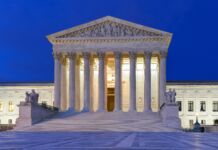
In Craig PC Sales & Service, LLC v. CDW Government, LLC, Case No. CIV-17-003-F, 2018 WL 4861522 (W.D. OK April 30, 2018), Senior Judge Stephen P. Friot issued an unusual opinion applying the Oklahoma Anti-Slapp in federal court, despite determining that the statute conflicts with Fed. R. Civ. P. 12 and 56.
This is precisely the argument adopted in dissent by Justice James E. Graves, Jr., in Cuba v. Pylant, 814 F.3d 701, 718 (5th Cir. 2016), wherein he argued the conflict should prevent application of the Texas Anti-Slapp in federal court. Several federal district courts in Texas have since adopted Justice Graves dissent to reject application of the Texas Anti-Slapp in federal court. (Side note – practitioners in Texas are still waiting on rulings in Klocke v. Watson (No. 17-11320) and Van Dyke v. Retzlaff, (18-40710) which should finally set precedent for the Fifth Circuit as to whether the Texas Anti-Slapp applies in federal court.).
Following 10th Circuit precedent regarding the Rules Enabling Act, Judge Friot determined that because F.R.C.P. 12 and 56 abridge or modify the substantive rights of the Oklahoma Anti-Slapp, those rules must yield and the statute applies in federal court..
In the case at bar, the application of Rule 12 or Rule 56 instead of the OCPA would therefore abridge or modify the state substantive right to recover attorney’s fees as recognized by the Oklahoma Supreme Court. Although Justice Stevens cautioned that the bar for finding a violation of the Rules Enabling Act is “a high one,” the court concludes that Rules 12 and 56 cannot be applied here in a manner consistent with the strictures of the Rules Enabling Act, since they abridge or modify substantive rights as recognized by the Oklahoma Supreme Court. Shady Grove, 559 U.S. at 432. Because Rules 12 and Rule 56 may not, consistently with the Rules Enabling Act and Justice Stevens’ concurring opinion, be applied here, and the court concludes that application of the OCPA conforms with the twin aims of Erie “discouragement of forum-shopping and avoidance of inequitable administration of the laws,” Hanna, 380 U.S. at 468, the court will apply the OCPA to plaintiffs’ claims.
Despite this opinion issuing in April 2018, and multiple federal courts weighing in on anti-slapp statutes around the country since then, no court has cited to Craig P.C.. Making it unheralded, and either prescient or an outlier when SCOTUS someday addresses the anti-slapp issue.






